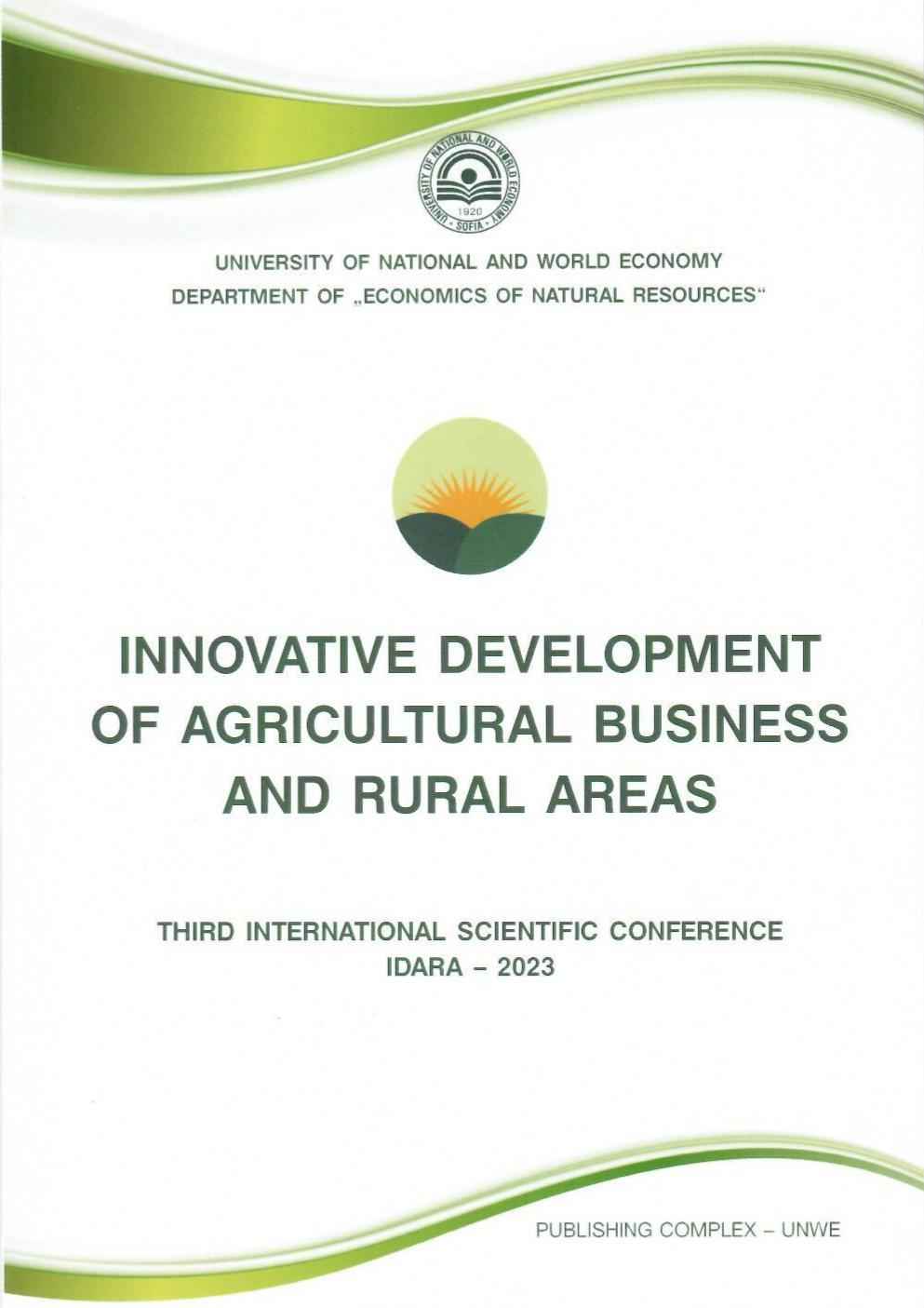Institutions and Mandates for Climate Change Adaptation in Bulgarian Rural Areas
Institutions and Mandates for Climate Change Adaptation in Bulgarian Rural Areas
Author(s): Yanka Kazakova-Mateva
Subject(s): Politics / Political Sciences, Politics, Economy, Business Economy / Management, Micro-Economics, Agriculture, Energy and Environmental Studies, Economic policy, Environmental and Energy policy, EU-Approach / EU-Accession / EU-Development
Published by: Университет за национално и световно стопанство (УНСС)
Keywords: climate change governance; adaptation readiness; agriculture
Summary/Abstract: Climate change is undeniably the leading challenge in the 21st century (IPCC 2022). Agriculture is simultaneously a major driver of climate change and is seriously affected by it (EEA, 2019). The adaptation efforts and the level of readiness to adapt to climate change vary between regions, countries and sectors (e.g. agriculture and environment). The overall goal of the research is to assess the level of readiness for climate change adaptation of the agricultural and environmental institutions in Bulgaria. The specific objective of the paper is to analyse their institutional setups and mandates for adapting to climate change in the Bulgarian rural areas. The research findings and results will support the identification of enabling conditions and key barriers to stronger institutional adaptation capacities of the main agricultural and environmental institutions in the country. The assessment is based on documentary analysis of the national climate adaptation strategy and the legal acts, regulating the institutions’ mandates and functions. The methodological approach is motivated by the conceptual model developed by Ford and King (2015) for assessing the climate adaptation readiness by governments at various scales. The focus is on three of their adaptation readiness factors – political leadership on adaptation, institutional organisation for adaptation and adaptation decision making. The results indicate a reactive rather than proactive political leadership on climate adaptation in Bulgaria. The institutional organisation for adaptation suffers serious understaffing in the Ministry of Environment and Water and in the relevance sectoral ministries. The Strategy on Climate Change and Adaptation stated the need for increased capacities and training in sectoral institutions and stakeholders in 2019. In 2023, there is only one environmental institution with an official mandate on climate change – the Climate Policy Department in the Ministry of Environment and Water. Its mandate is on policy development at the global, European and national level addressing both mitigation and adaptation needs; and it is the smallest unit in the ministry in terms of staff numbers. The other environmental institution with a mandate on climate change is the Executive Environmental Agency which monitors the greenhouse gas emissions and the related permits and registers, with no explicit mandate on climate adaptation. As regards the agriculture and rural development institutions, the Rural Development Directorate in the Ministry of Agriculture has a mandate to propose measures addressing climate change needs during the programming of the Common Agricultural Policy Strategic Plan 2023-2027. The identified needs (i.e. introduce climate adapted breeds and plant species) relate to the farming sector and not to the rural areas. Overall, the key weakness of the Bulgarian climate adaptation approach in rural areas is its reactive and ad-hoc basis. It either is driven by EU regulations and requirements or is implemented when project opportunities arise, without systemic planning and ownership of responsibility in the agriculture or environmental institutions.
- Page Range: 146-154
- Page Count: 9
- Publication Year: 2024
- Language: English
- Content File-PDF

